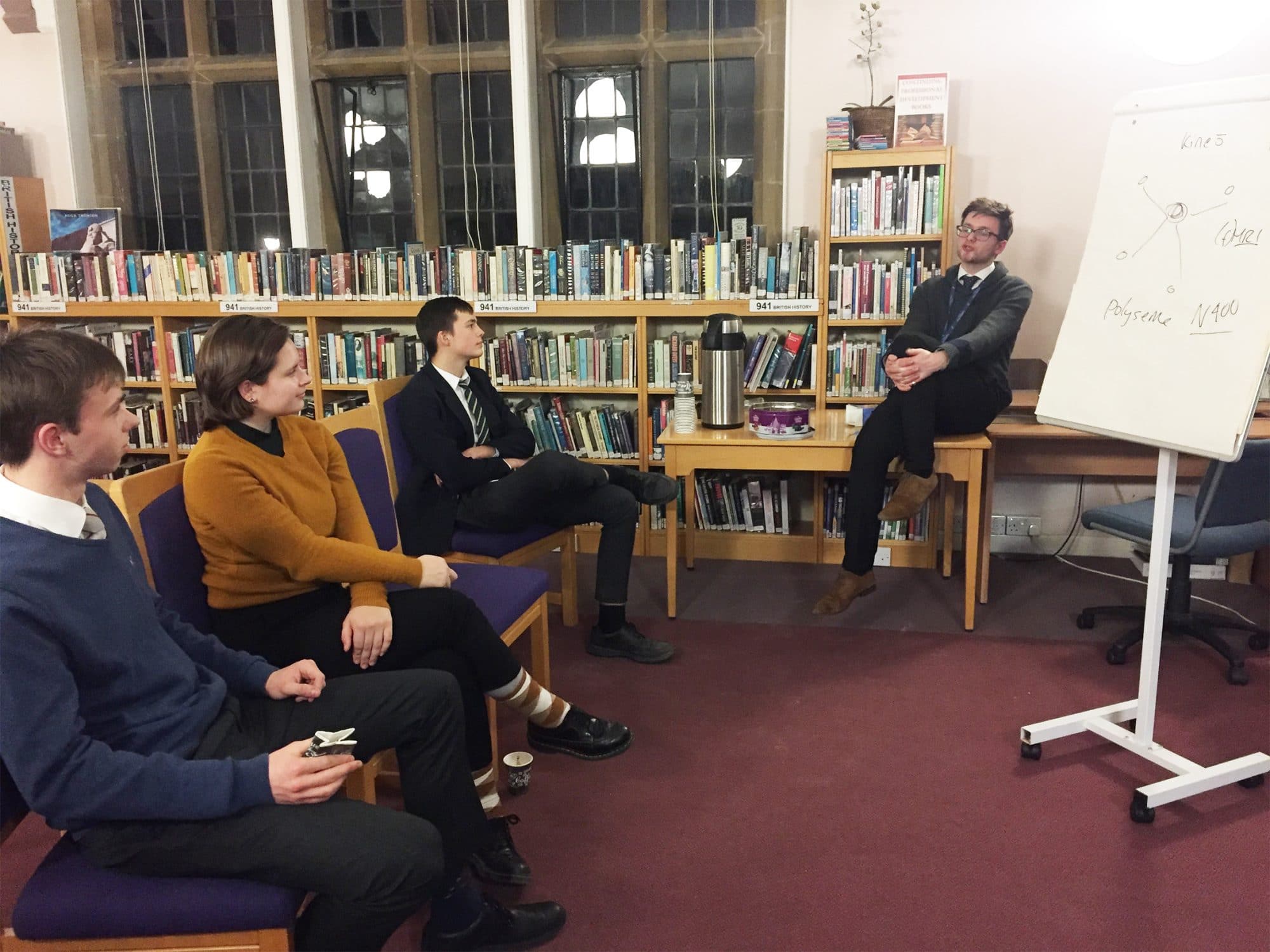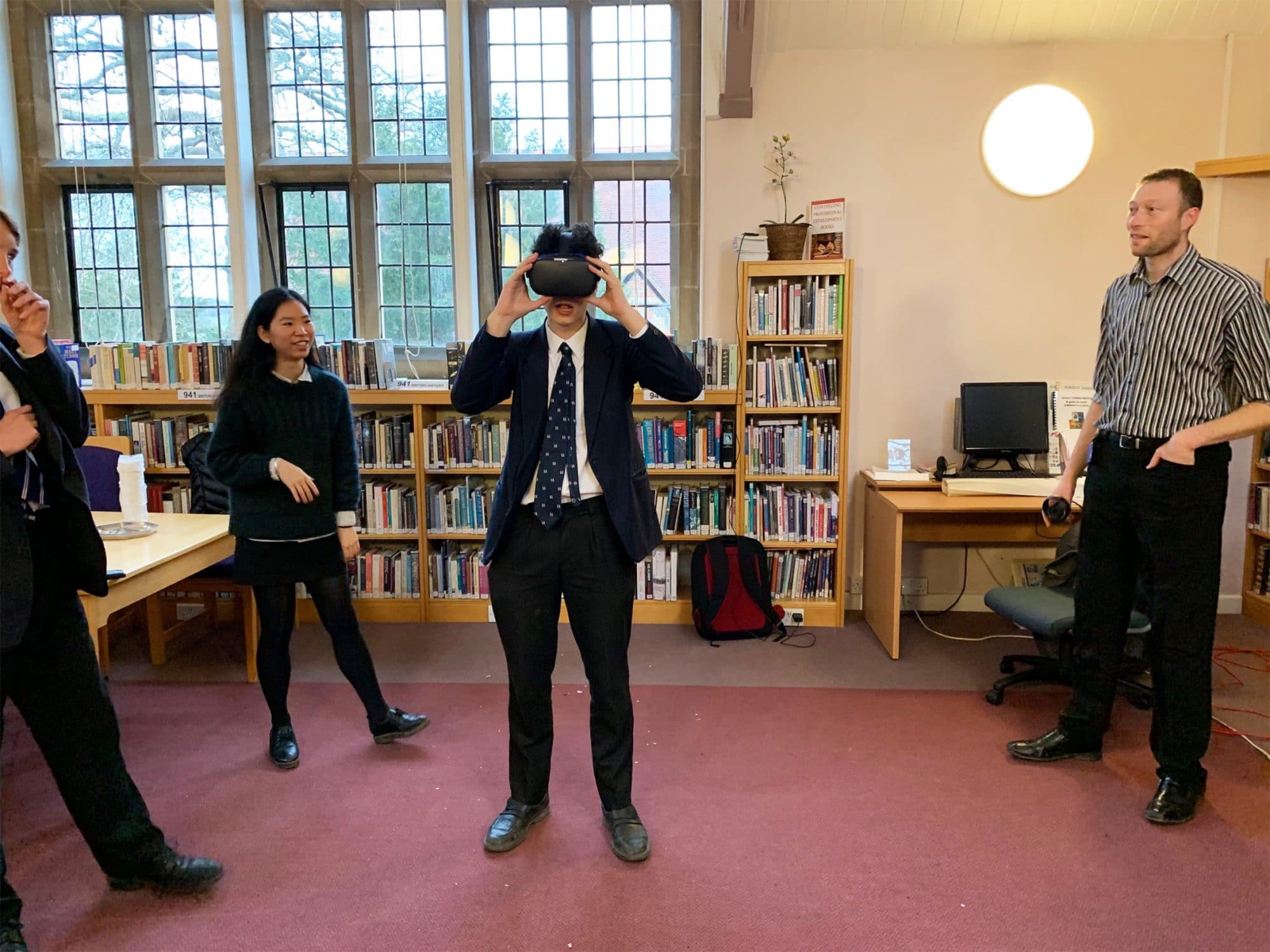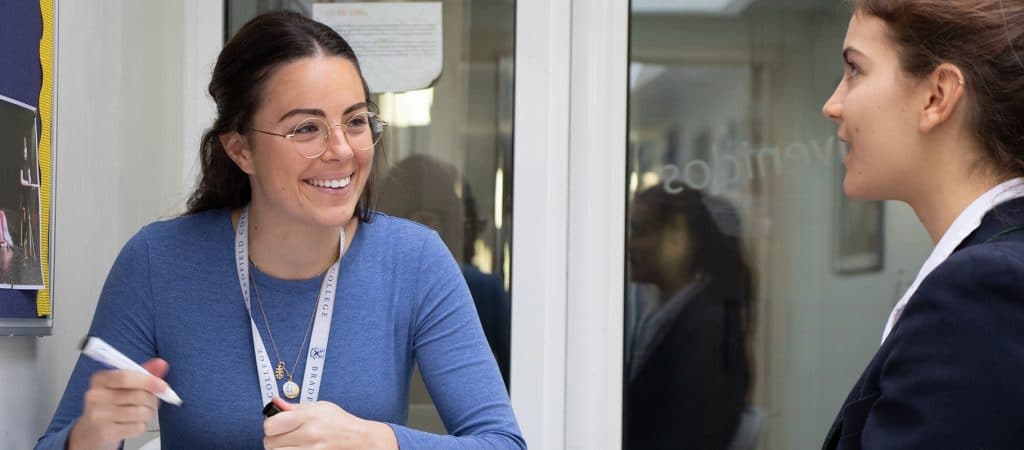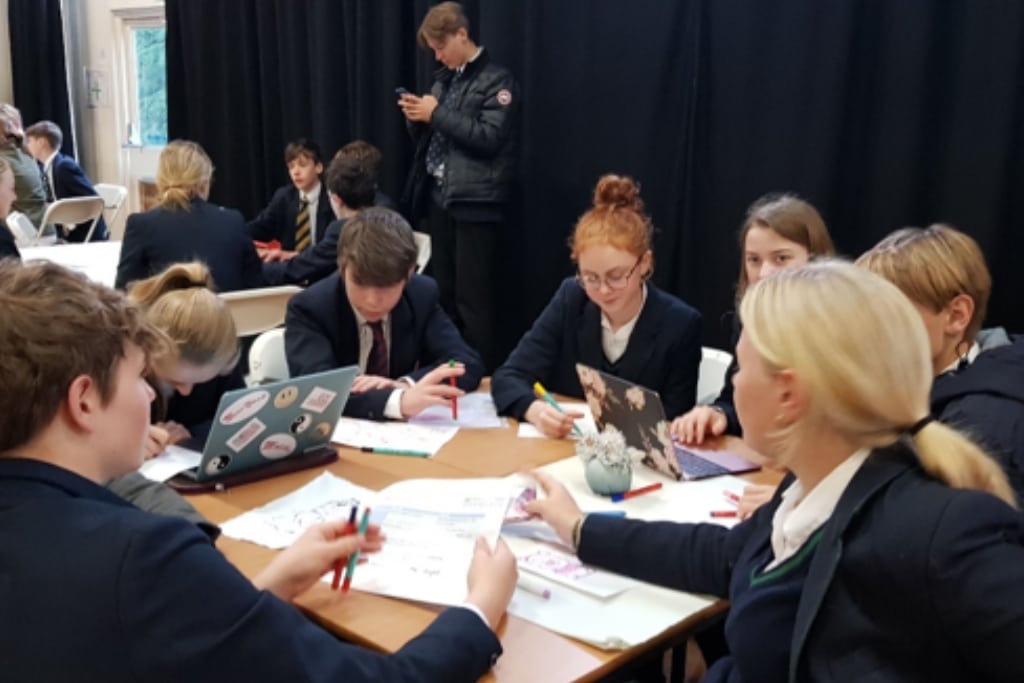Topics are occasionally contentious, dividing the group, and pupils have to learn to respect one another’s opinions which teaches them to see arguments from different viewpoints. Often, Senior pupils are able to set the Lower School pupils straight about theories and ideas, especially on subjects that do not feature on the GCSE curriculum.
Being able to challenge one another’s viewpoints builds resilience and confidence in pupils who in a larger scale setting might not feel that they can share their opinions. Pupils are also exposed to real world issues outside the independent school setting, bringing them into contact with people who have had vast life experience in a range of different areas.
It is so important to remember that attending Bradfield College is a privilege, and keeping ourselves grounded in reality helps us to remember that we may be uniquely placed to make and take opportunities to change our world for the better.
Pupils have moved from a tentative state of mind to a confident can-do attitude.
Diadati is not solely focussed on exposing pupils to topics outside of the curriculum as the themes and discussions which occur help attendees become more open-minded and inquiring about subjects they are studying.
Building confidence in a small group has a positive effect on pupils’ ability to speak up in the classroom. In some cases, particularly when external speakers have come in to talk, pupils who have stayed behind to talk to the speaker have felt affirmed and inspired, moving them from a tentative state of mind to a confident can-do attitude.
I specifically witnessed this when a speaker from the Henley Business School’s Centre for Entrepreneurship came to give a talk, and it was wonderful to see the guidance and affirmation he provided to pupils from Diadati.







